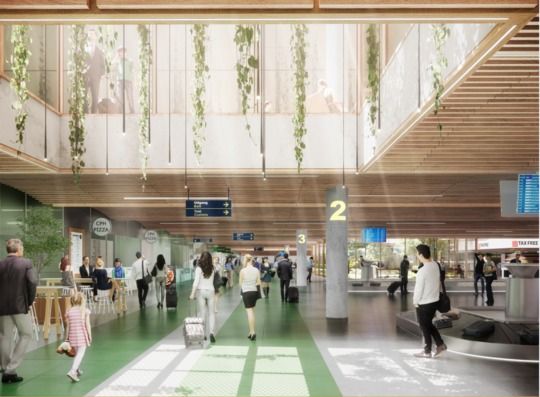Copenhagen Airport is preparing for its biggest expansion stage yet, as it seeks to add 80,000 sqm of space to the busy area between Gates B and C as part of its massive 20 billion kroner revamp project.
The move, which will also include improved conditions in the baggage claim area, is expected to bring the annual capacity of the Nordic hub up to 40 million passengers.
“It’ll be a project that shows Denmark at its best: beautiful Nordic architecture, green footprint, accessibility, spaciousness and uncomplicated service. For despite the airport growing, passengers will still experience everything under one roof – unlike many other airports around the world,” said Thomas Woldbye, the CEO.
READ MORE: Gamechanger for CPH Airport: Massive expansion in the works
Comprehensive and complex
One of the key aspects of the project is creating more space and natural lighting in the baggage claim area (see photos below) as well as a 270 x 60 metre expansion to the area between Gates B and C.
The move also promises to create more space for the passport control area, as well as for passengers arriving and departing in the Gate C area.
Aside from the scope of the project, it is further complicated by the construction taking place while the airport operates as per usual.















